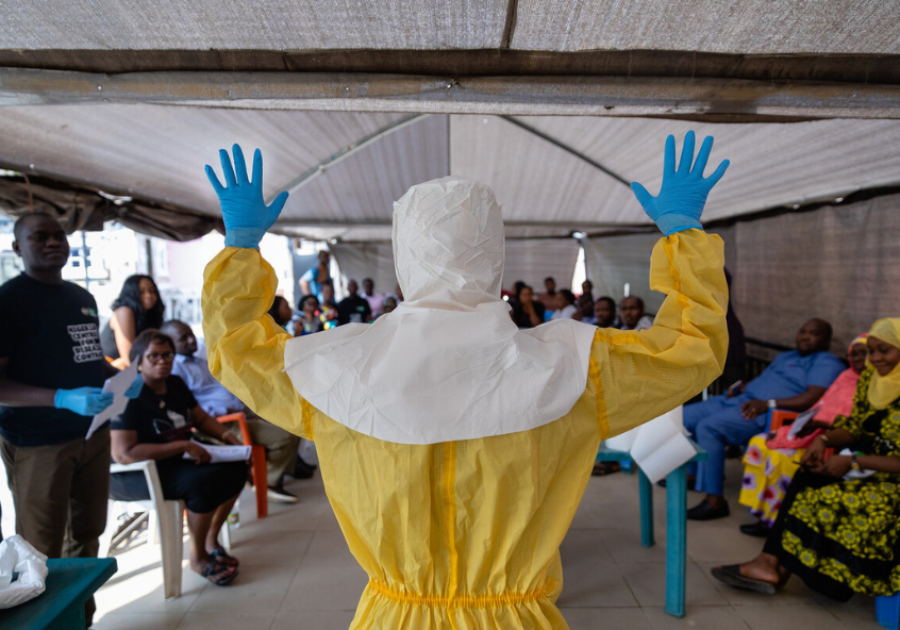
23 March 2024 marks 10 years since the World Health Organization reported an outbreak of Ebola Virus Disease in Guinea. This was the beginning of what remains the largest Ebola epidemic to date, as in the following months the disease spread rapidly across West Africa. Sierra Leone, Liberia, and Guinea were worst affected, registering a cumulative 28,616 cases and 11,310 deaths. The declaration of a public health emergency of international concern, coupled with national state of emergency legislation in these countries, also had long-lasting social and economic repercussions.
The experience of Ebola has had a profound impact on vaccine development, as well as global and national public health systems, particularly in response to new epidemics. This includes new global mechanisms for assessing epidemic preparedness, funding response, and supporting knowledge sharing and research. In affected countries like Sierra Leone, a newly established National Public Health Agency builds on the significant expertise that now exists in the country for infectious disease surveillance, laboratory testing, infection prevention and control, clinical research, and risk communication.
LSHTM academics played a key role in the 2014 Ebola outbreak response, from infectious disease modelling to establishing the Ebola Anthropology Platform to provide rapid social science expertise to support outbreak response. LSHTM also led clinical trials of the Jansen Ebola vaccine (EBOVAC) in Kambia District, Northern Sierra Leone, with the College of Medicine and Allied Health Sciences of the University of Sierra Leone. While a vaccine had been in development since soon after the discovery of Ebola in the Democratic Republic of Congo (DRC) in 1976, none had been licensed by the time of the West African outbreak. Then the EBOVAC trial opened its doors in October 2015.
Read the expert opinion by Dr Luisa Enria, Associate Professor of Anthropology, and Shelley Lees, Professor of Anthropology of Public Health, from the Vaccine Centre at the London School of Hygiene & Tropical Medicine (LSHTM).
LSHTM's short courses provide opportunities to study specialised topics across a broad range of public and global health fields. From AMR to vaccines, travel medicine to clinical trials, and modelling to malaria, refresh your skills and join one of our short courses today.
